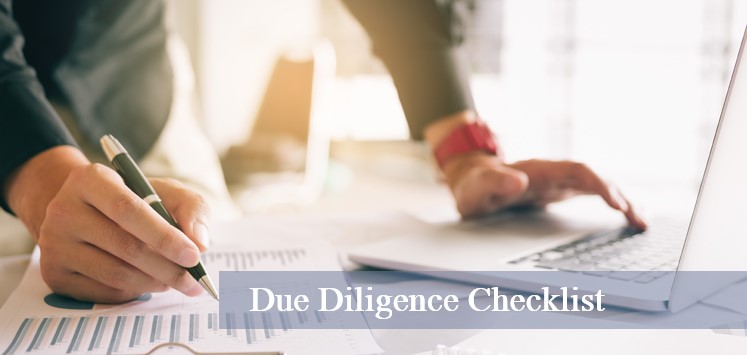
Due Diligence Checklist: Buying a Business
When buying a business there are many documents, agreements, and statements you will want to obtain and analyze. With the help of a lawyer and/or accountant this process is much easier. Doing your due diligence will help you avoid many of the headaches and troubles down the road. While it may not eliminate them, going through these documents will give you a heads-up about what road bumps may come. Here is a due diligence checklist of things to go through before buying a business.
For questions, reach out to Peak Business Valuation by scheduling a free consultation. We are happy to help throughout the buying process!
Due Diligence Checklist when Buying a Business
1. Business License and Permits
First, be sure the business you are buying has all the necessary licenses and permits. In certain industries, like food or healthcare, valid permits are critical. Legally, you want to make sure everything is in place with local business laws. If the necessary licenses or permits are not current you may need to apply for them yourself. Through the SBA, you can find out which federal, state, and local permits and licenses you need to run a business.
2. Organizational Documents
Registered business entities, such as an LLC or corporation will have organizational documents on file with the state. In an LLC, these are articles of organization. In a corporation, these documents are articles of incorporation. If a business is a sole proprietorship or partnership, there may not be any official paperwork.
3. Zoning and Environmental Regulations
Be sure to check with local zoning laws to ensure you buy a business that isn’t in violation of any restrictions. Some places have tight restrictions on where businesses can be located. This is the case, particularly in residential areas.
Many areas have small business environmental regulations. If you are buying real property along with the business, make sure the business is abiding by these laws.
4. Contracts and Leases
Review any agreements the business has with customers, suppliers, and other individuals. A business can have leases for the property and/or equipment. All the legal documents should transfer to your name when the business sells. If not, you will need to renegotiate new leases which can add to your expenses.
Additionally, review client and supplier lists to give you insight into the stability and longevity of the business. For instance, if 90% of the business’s revenue comes from a single client, you may lose that client in the management transfer. Businesses like this are high risk and you may want to think twice before buying it.
5. Financial Statements
Before purchasing a business, review the last several years of financials. A few documents to look at include:
- Tax returns
- Balance sheets
- Cash flow statements
- Income statements
- Sales records and accounts receivable
- Accounts payable
- Debt expenses
- Advertising expenses
Using financial statements you have the opportunity to analyze income and profitability. Debts and liabilities are also important to review. Before buying a business ask what the transaction will include, particularly debts and liabilities. You may not want to take on bad debts. For example, outstanding accounts receivable greater than 90 days may be difficult to collect. A business may not be where you would like it to be, but there should be a clear path to obtaining your goals.
6. Organizational Chart
Next, you will want to understand how the organization runs and who the key employees are. This may include management practices and processes, benefits, insurance, time-off policies, and compensation.
7. Status of Inventory and Equipment
Inventory, equipment, furniture, and structures all impact the cost and value of the business. Be sure to check what is in stock, the quality, and sell-ability. Additionally, review maintenance records and examine the furniture and building structure.
Summary
This due diligence checklist of documents isn’t comprehensive. Speak with an attorney or accountant to identify any additional documents that are useful or interesting for the specific business. For instance, intellectual property and intangible assets can be invaluable resources.
We at Peak Business Valuation would love to help you with buying a business. We have contacts with several brokers across the country and provide business valuations to help determine a fair purchase price. Questions are always welcome. Please reach out by scheduling a free consultation.
Schedule Your Free Consultation Today!
